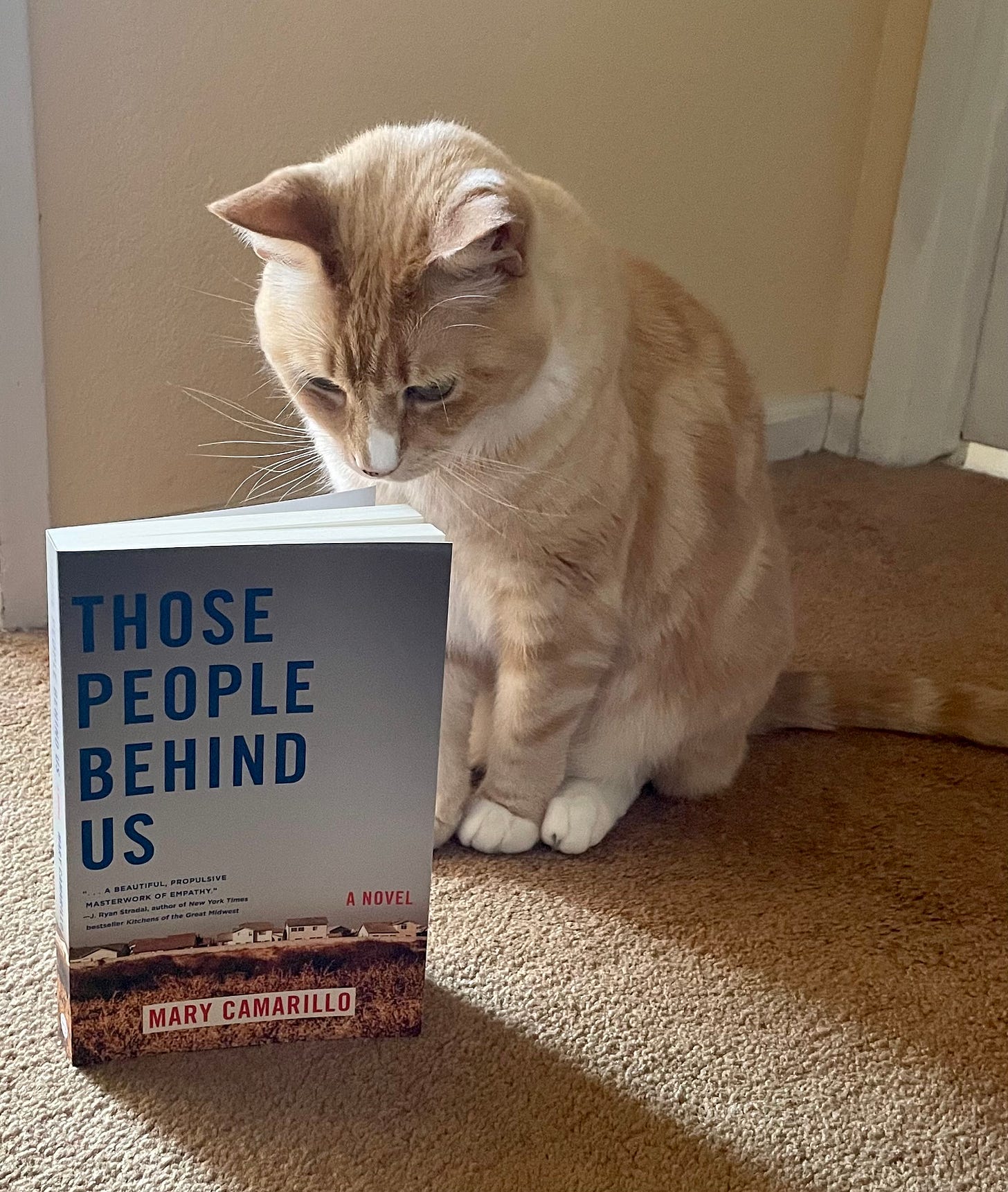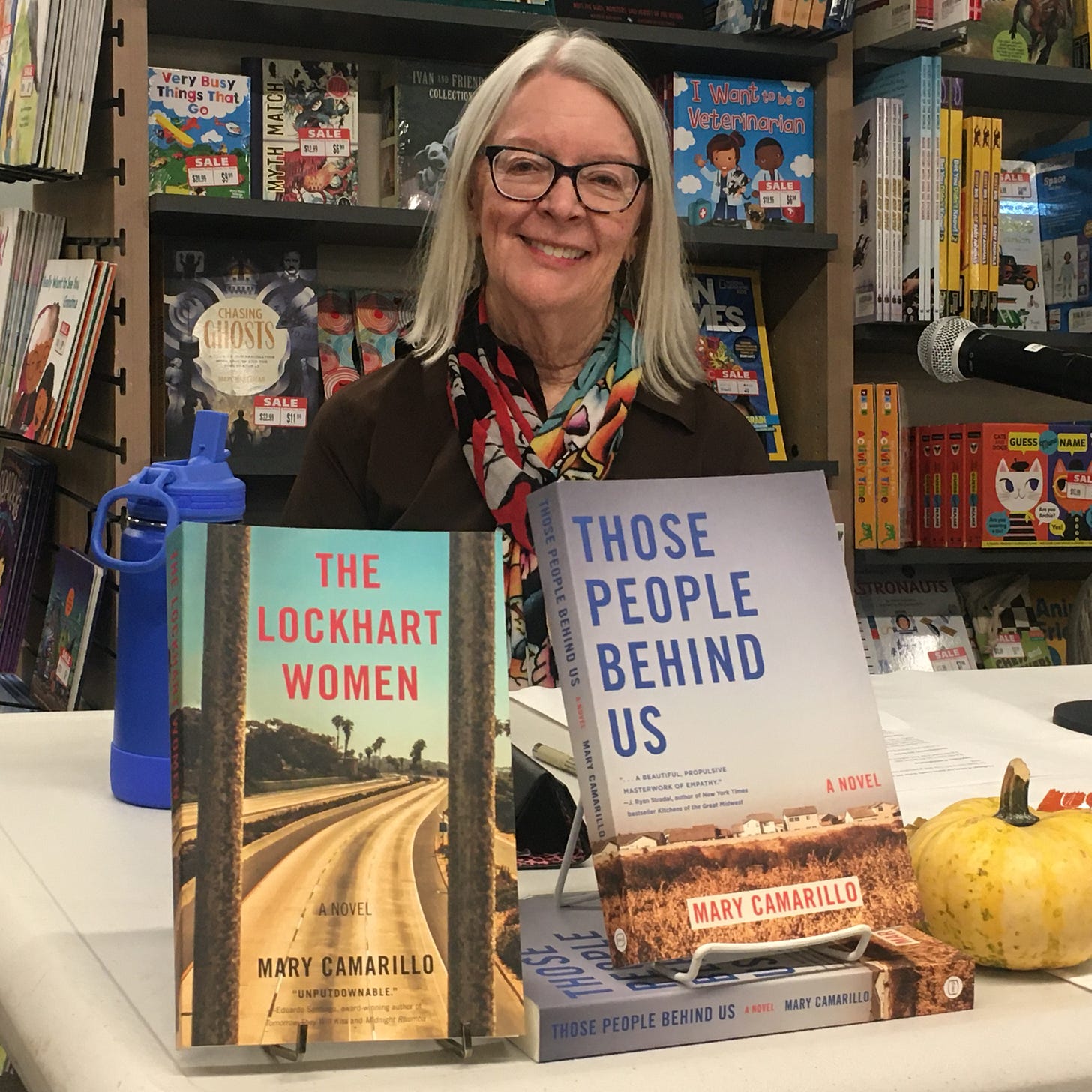Welcome to my Substack
Life With Riley.
I write fiction about Southern California, a place I’ve lived for more than 55 years and am still trying to understand.
I have two novels out in the world, “The Lockhart Women” released in 2021, and “Those People Behind Us” released in October of 2023. These books are not about the rich and glamorous. My characters are more likely to work at the post office, shop at Target, and think a dinner out at the Olive Garden is pretty special.
This newsletter, “Life With Riley” is named after my 15-pound Flame Point Siamese. I publish every three weeks or so and I write about where I live (Huntington Beach, California), what I’m reading (usually fiction), what I’m thinking about (usually book related), and what I’m listening to (could be anything but hopefully it’s live.)
I’ve used MailChimp for this newsletter for a few years now but am excited to explore the possibilities of Substack. No paid subscription required!
I’ve been talking about my new release a lot lately and I’ve learned it’s wise to ask folks what they like to read before launching into a long spiel about my book and realizing too late that their eyes have glazed over. Not everyone reads fiction.
I’m wondering if maybe they should.
If you watch the news or scroll through comments on social media you are well aware that empathy is in decline in these increasingly divided United States, where we all tend to listen to those that we agree with and make assumptions about those people we don’t understand.
Empathy Deficit Disorder (EDD) is a recognized mental health condition. People with EDD tend to focus on their own needs and neglect other people’s emotions, are overly judgmental of others, fail to show appreciation or gratitude, and struggle to understand people from a different cultural, political, or religious background.
Sound familiar?
My new novel “Those People Behind Us” explores this territory. It’s set in the post-Trump, pre-pandemic summer of 2017, in a suburban, coastal neighborhood divided by protests, politics, and escalating housing prices. These divisions change the lives of five neighbors all struggling with financial problems, rebellious teenagers, aging parents, loneliness, and grief, in a neighborhood where no one can agree who belongs. In the end, the characters realize they have more in common than they realized.
The point of the novel is that showing a slight amount of empathy can greatly increase our understanding of whoever it is we refer to as “those people.” I realize that sounds obvious, overly simplified and probably naïve. It feels like the truth though.

So how do we increase empathy? There’s research that indicates that reading fiction might be a good start.
In 2006, Keith Oatley, a professor emeritus of cognitive psychology at the University of Toronto, and his colleagues published a study that drew a strong connection between reading fiction and better performance on widely used empathy and social acumen tests.
The National Library of Medicine reported in 2013 that “when people read fiction, and they are emotionally transported into the story, they become more empathic.”
A 2014 study reported in the Journal of Applied Social Psychology showed that elementary school and high school students in Italy and the United Kingdom became more empathic toward immigrants, refugees, and gay and lesbian people after reading Harry Potter.
Even back in 1862, when Abraham Lincoln was introduced to “Uncle Tom’s Cabin” author, Harriet Beecher Stowe, he told her she was "the little woman who wrote the book that started this great war.”
Poet laureate Amanda Gorman recently said that stories are where we access each other’s humanity.

Reading fiction transports us into other people’s minds, worlds, families, and communities and allows us to see and experience lives that are very different from our own. We can understand what it’s like to lose a child, to be in a war, to immigrate to a different country. We see the world through the lens of another person’s perspective and experience.
And maybe we stop referring to people we don’t know or understand as “those people” and instead, recognize them as our neighbors and fellow human beings.
What do you think? I’d love to hear your thoughts.




